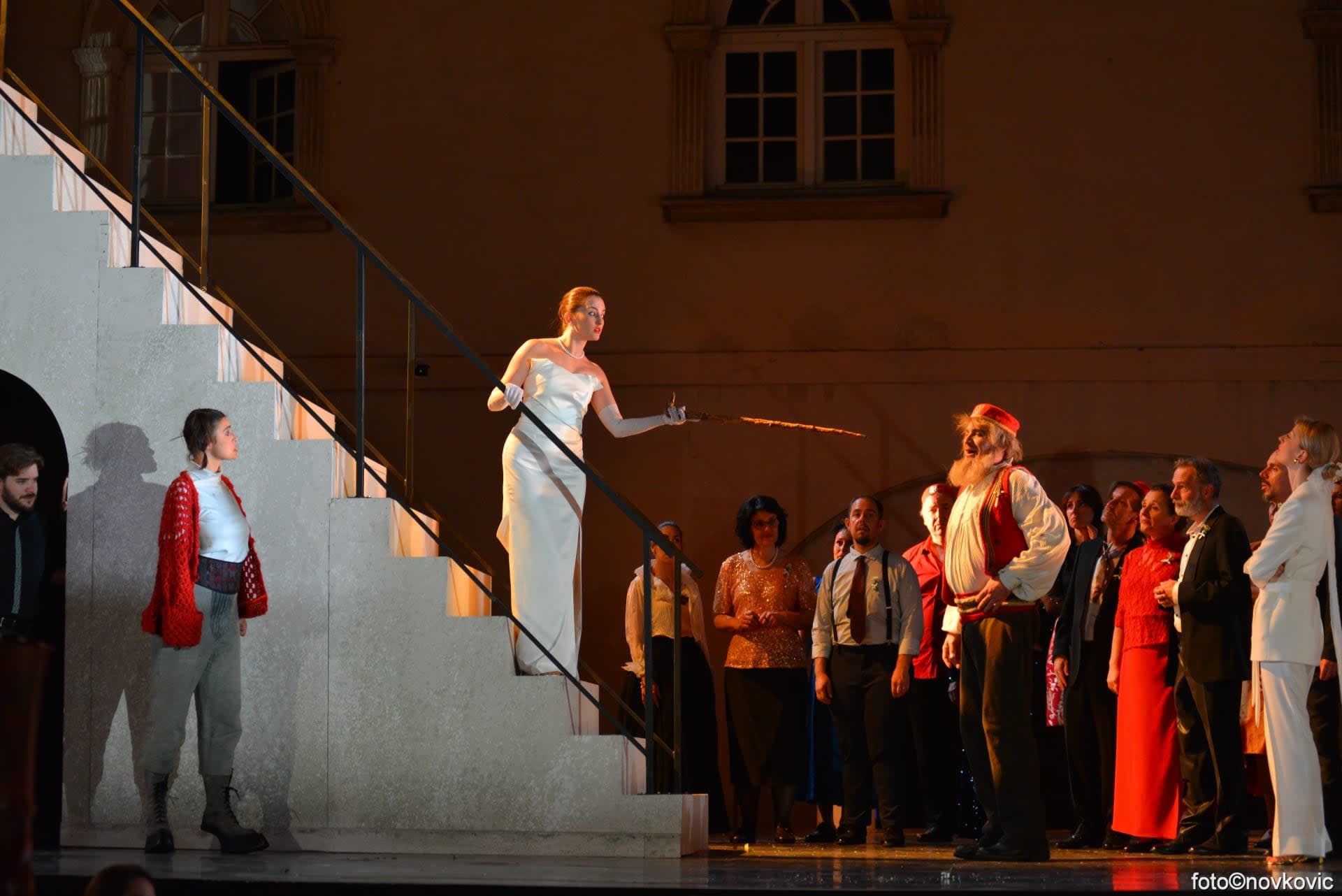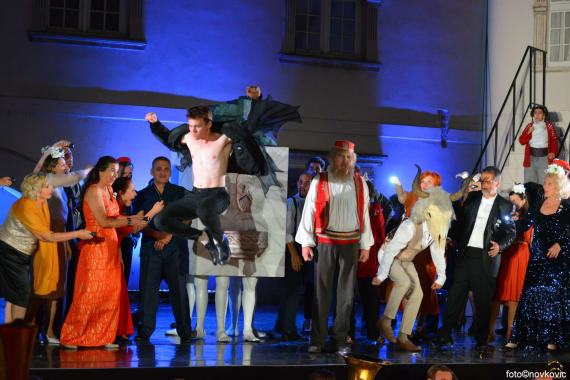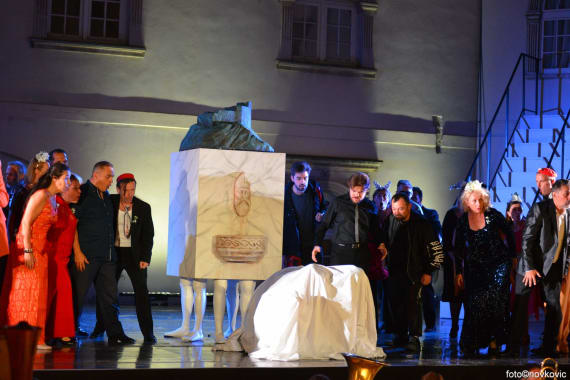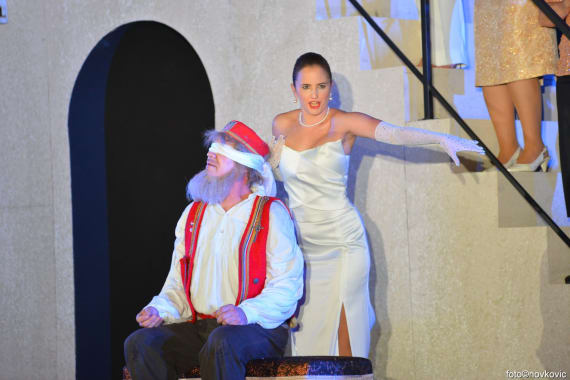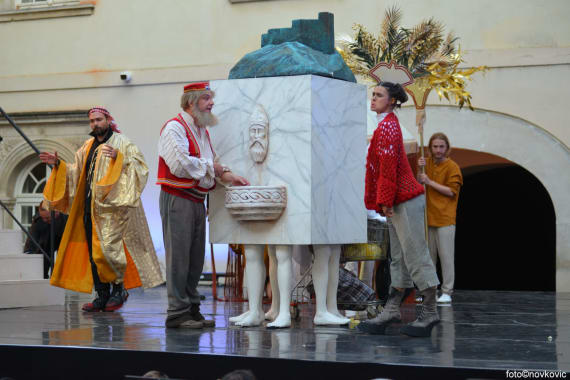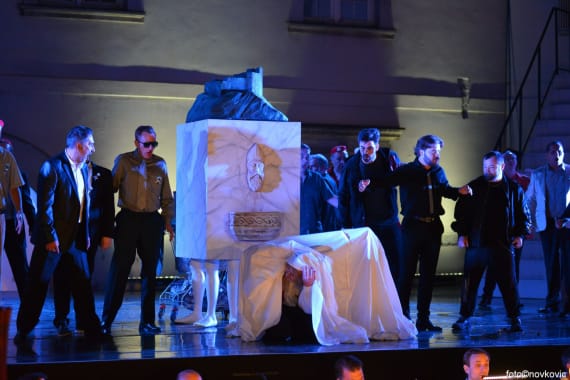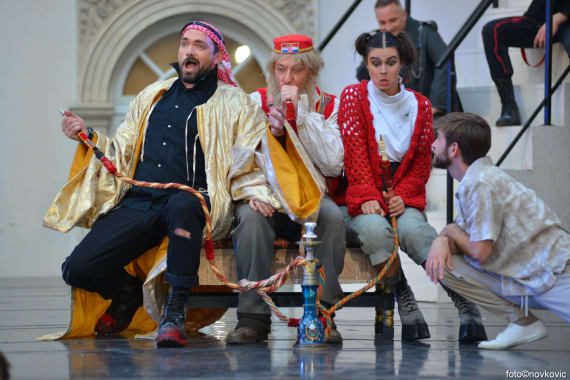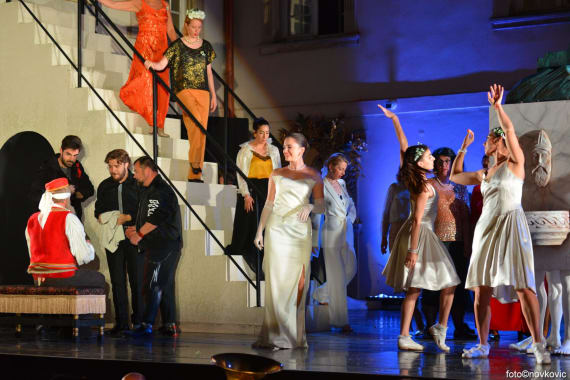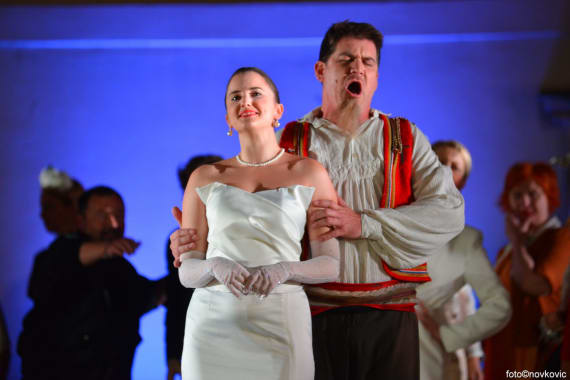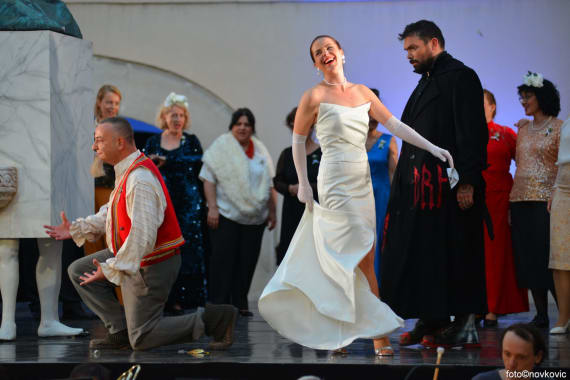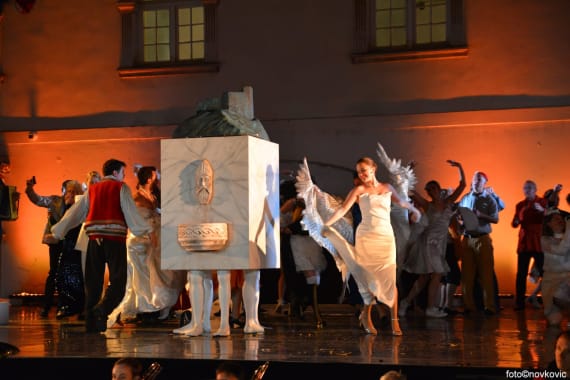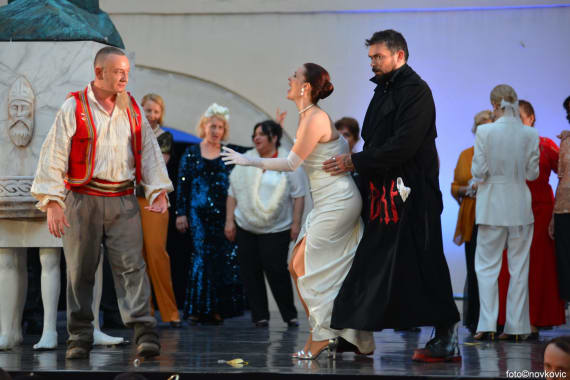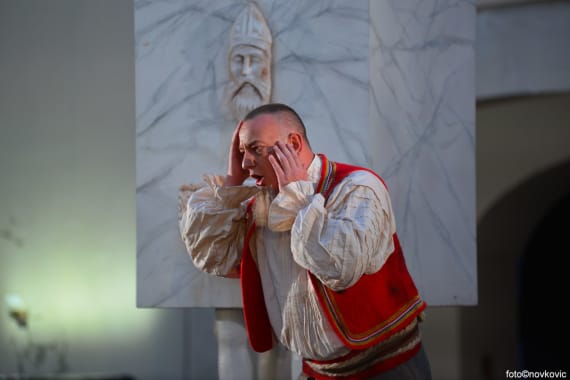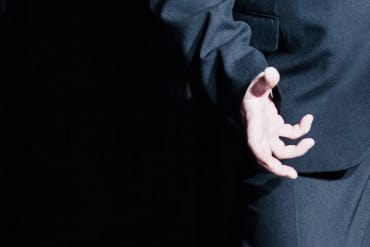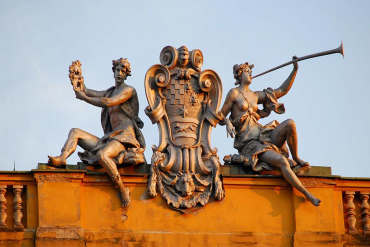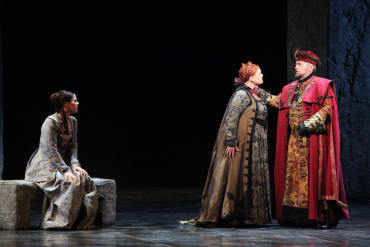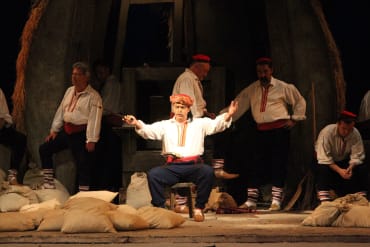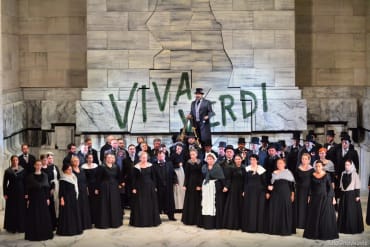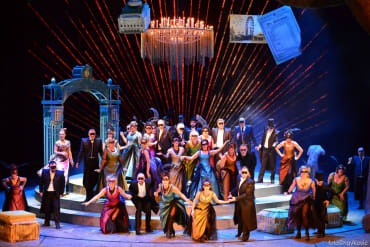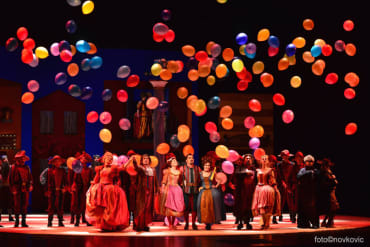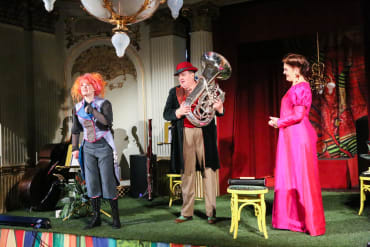One of the greatest Croatian opera composer Jakov Gotovac at the end of the 1950s composed a one-act opera Stanac after the comedy Novela od Stanca by Držić, collaborating with the librettist Vojmil Rabadan. The work that Gotovac himself categorised as an opera scherzo follows the plot of a Dubrovnik Renaissance comedy written in 1550 that Držić placed during the carnival, a time when anything is possible. Created after the Italian Renaissance stage masquerades, Držić's pastoral is coloured with the local nuances and the leading character is peasant Stanac. The naive old man believes he will regain his youth and is willing to pay good money to the carnival masks. the prose work, interwoven with pastoral elements and farce, with dances of the fairies and folklore that portrays an atmosphere of a carnival night in Dubrovnik, was entirely transferred by the authors into a music-stage work. This is a chamber opera that ends with the carnival masks apologising to Stanac for the prank and awarding him nicely.
The opera had its world opening night in 1959 at the Croatian National Theatre in Zagreb and then it was rerun together with another one-act opera Dalmaro in the same evening titled Adriatic duology. With this premiere conducted by Ivo Lipanović and directed by Hrvoje Korbar, the Zagreb Opera continues with the presentation of the best works of Croatian opera literature with which it enriches its repertoire.
